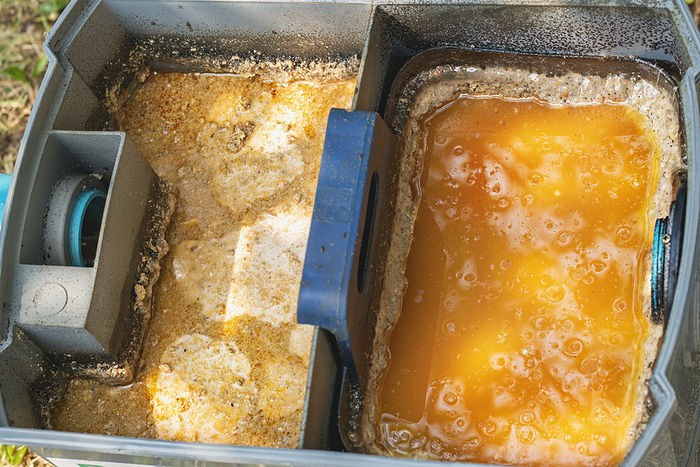
Grease is one of the leading causes of clogged drains and other septic problems. While it’s convenient to pour grease into your sink and let it find its way down the drain, this action can clog your pipes in the long run. When you pour grease down the drain, it eventually cools down and sticks to the inside of your drain pipes. Over time, grease accumulation will clog your drain pipes, resulting in drain line backup. For that reason, you should avoid pouring grease, fats, and oils down the drain.
There’s no such thing as good grease for your drain lines. All types of grease can be harmful to your plumbing system. Even the type of grease that remains liquid below the freezing point of water should never go down the drain.
If grease has clogged up your plumbing system, ensure you call a septic cleaning company to clean your drain pipes and prevent future problems.
Let's look at the different types of grease and how they can affect your plumbing system.
Solidifying Greases
Solidifying grease is the type of grease that becomes solid at room temperature (21-22° C) down to the freezing point of water (0° C). Some of the examples of solidifying grease are butter and meat grease. This type of grease is a common reason behind calls for emergency drain cleaning services. The issue with draining solidifying grease down the sink is that it will gradually accumulate inside the pipes and cause obstruction. If the grease travels further down your septic system, it can harm your septic tank. If you don’t clear grease from a blocked drain, you’re more likely to end up with slow drainage, sewage backup, unpleasant odor, and health risks. Many people mistakenly believe that pouring hot water down the drain can get rid of grease buildup. The truth is, the liquid grease will cool off as it travels down the drains and stick to the drain pipes. The only solution to grease buildup in the drain lines is to avoid pouring any kind of grease into your sink.
Liquid Greases
Liquid greases comprise of all types of greases that remain liquid even below the freezing point of water (0°C). While liquid greases may not cause clogs unless temperatures fall to extreme levels, these greases can cause septic system failure.
How To Dispose Of Grease
Simply let your leftover grease cool down and solidify. Once cooled, scrape it into a metal can and throw it in your kitchen trash. Do not pour hot grease into a container as it could melt it and cause a mess.
If you're facing a buildup of grease in your drain pipes, you need to call a septic cleaning company as soon as possible to help you restore your plumbing’s functionality. You can rely on Rooter Septic Service to dislodge obstructions and restore your drain lines to their good working order. We also provide septic tank pumping, septic cleaning, septic maintenance, and other septic services.